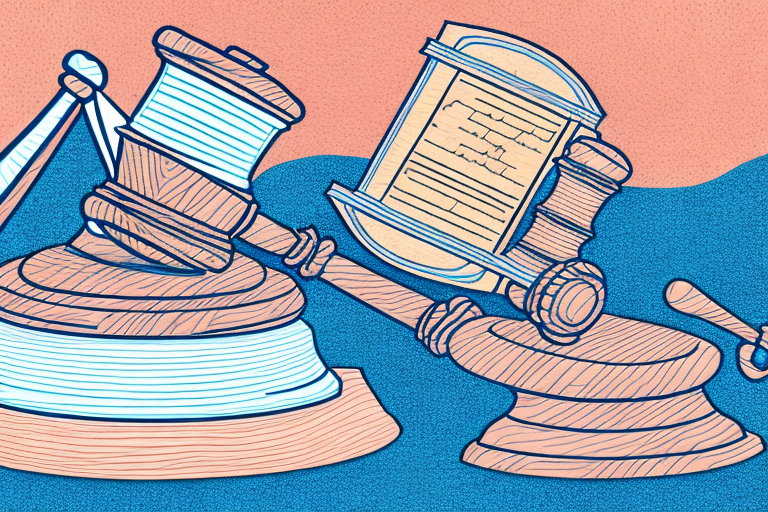Introduction
Definition of e-commerce /Overview of legal considerations for businesses operating in e-commerce
E-commerce has become an integral part of the global economy, with businesses of all sizes turning to the internet to expand their reach and increase their sales.
However, operating an e-commerce business comes with its own set of legal considerations that must be taken into account. This article will explore some of the key legal issues that businesses operating in e-commerce must consider.
Commercial Law and Regulations that govern e-commerce industry

Commercial law is an important area of law that deals with the regulation of commercial transactions. This includes the sale of goods and services, as well as the formation of contracts and other commercial agreements.
Businesses operating in e-commerce must be familiar with Australian commercial law and the regulations that govern their industry in order to ensure compliance.
Legal Professionals: Commercial lawyer and commercial law
Legal professionals, such as commercial lawyers Sydney and commercial law firms, can help businesses navigate the legal complexities of e-commerce. These legal experts practicing legal career have a deep understanding of the laws and regulations that govern e-commerce and can provide valuable guidance to businesses.
They can also assist with the drafting of legal documents, such as contracts, and can advise on intellectual property law, which is particularly relevant for e-commerce businesses.
Role of legal professionals in navigating legal complexities of e-commerce
Corporate law and civil law are also important areas of law that businesses operating in e-commerce must consider. Corporate law deals with the formation and operation of companies, while civil law deals with disputes between individuals or businesses.
Both areas of law can have a significant impact on e-commerce businesses, and legal professionals can provide guidance on how to navigate these legal issues.
Studying Law and becoming a Commercial Lawyer

Studying law and obtaining a law degree can be an excellent way to gain the knowledge and research skills needed to work in the e-commerce industry. Many legal professionals working in e-commerce have a law degree and have completed an undergraduate law program.
However, it is also possible to gain knowledge of the legal issues related to e-commerce through on-the-job training and experience, especially in smaller firms.
Services offered by commercial lawyer, including drafting legal documents and advising on intellectual property law

Businesses operating in e-commerce must be aware of the legal considerations that come with it. Legal professionals, such as commercial lawyers and commercial law firms, can provide valuable guidance on navigating the legal complexities of e-commerce through their legal and research skills.
Obtaining a law degree or gaining legal knowledge through on-the-job training can also be helpful for those seeking a career in the e-commerce industry. It is important for businesses to stay informed about the legal issues that may arise in their industry and take steps to address any legal concerns or complications as they arise.
Explanation of data protection regulations such as GDPR
Additionally, legal issues related to e-commerce also include data protection and privacy. As e-commerce businesses collect, store and process personal data of their customers and clients, they need to comply with data protection regulations such as the General Data Protection Regulation (GDPR.
Businesses must ensure that they have appropriate security measures in place to protect the personal data of their customers and clients, and that they are transparent about their data collection and processing practices.
Importance of protecting personal data of customers and clients
Another important legal consideration for e-commerce businesses is compliance with consumer law. These laws are designed to protect consumers from fraud, deceptive practices, and unfair business practices.
E-commerce businesses must ensure that they are not engaging in any activities that could be considered fraudulent or deceptive, and that they are providing accurate and truthful information to their customers and clients.
Transparency of data collection and processing practices

E-commerce businesses also need to consider legal issues related to taxes, such as sales tax and VAT. Businesses must comply with tax laws in the jurisdictions in which they operate and collect, report, and remit taxes as required.
Failure to comply with tax laws can result in penalties and fines, so it is important for e-commerce businesses to consult with legal professionals or tax experts to ensure compliance.
Consulting with legal professionals or tax experts for guidance
E-commerce businesses should be aware of the legal issues that may arise in international transactions. These include compliance with export control laws and regulations, as well as trade sanctions laws. Businesses must ensure that they are not engaging in any activities that are prohibited by these laws, and that they are complying with all relevant regulations.
Importance of compliance with tax laws
Operating an e-commerce business comes with a variety of legal considerations that must be taken into account. Businesses must be aware of the laws and regulations that govern their industry, including commercial law, intellectual property law, data protection and privacy laws, consumer protection laws, tax laws, and international trade laws.
Legal professionals, such as commercial lawyers, and tax experts, can provide valuable guidance on navigating these legal issues and help businesses to comply with the law.
Explanation of laws and regulations related to advertising and marketing
Another legal consideration that e-commerce businesses need to be aware of is advertising and marketing. E-commerce businesses often use online platforms to promote their products and services, and they need to ensure that their advertising and marketing efforts comply with laws and regulations related to advertising and marketing.
This includes laws related to truth in advertising, advertising to children, and the use of endorsements and testimonials. Businesses must ensure that their advertising and marketing efforts are truthful, not misleading, and that they are not targeting children or making false or unsubstantiated claims.
Website Accessibility and Terms of Use
E-commerce businesses also need to be aware of legal issues related to their websites, such as website accessibility, website terms of use, and privacy policies. Websites must comply with laws related to accessibility, and they must have clear and easily accessible terms of use and privacy policies.
Businesses must ensure that their websites comply with all relevant laws and regulations, and that they are providing accurate and up-to-date information to their customers.
The use of third-party platforms such as Amazon, eBay, and Shopify
Another legal consideration for e-commerce businesses is the use of third-party platforms and services. E-commerce businesses often use platforms such as Amazon, eBay, and Shopify to sell their products, and they need to comply with the terms and conditions of these platforms.
Businesses must ensure that they are not violating any of the terms and conditions of these platforms, and that they are not engaging in any activities that could result in their accounts being suspended or terminated.
Importance of understanding and compliance with laws and regulations
Operating an e-commerce business requires a thorough understanding of the laws and regulations that govern the industry.
Businesses must be aware of the legal considerations related to commercial law, legal professionals, corporate law, consumer law, private law, employment law, competitive law, corporate governance civil law, data protection and privacy, consumer protection laws, taxes, international transactions, advertising and marketing, website accessibility, and the use of third-party platforms.
Role of legal professionals in navigating legal issues.
A commercial lawyer working in the commercial law firms, and tax experts, can provide valuable guidance on navigating these legal issues and help businesses to comply with the law.
Businesses should also stay informed of any changes in laws and regulations and take steps to address any legal concerns or complications as they arise.
Conclusions
Corporate law and civil law are also important areas of law that businesses operating in e-commerce must consider. Corporations law or business law deals with the formation and operation of companies through corporate governance while civil law deals with disputes between individuals or businesses.
For more Information, you can contact us at Chamberlains for your commercial legal complications and concerns








